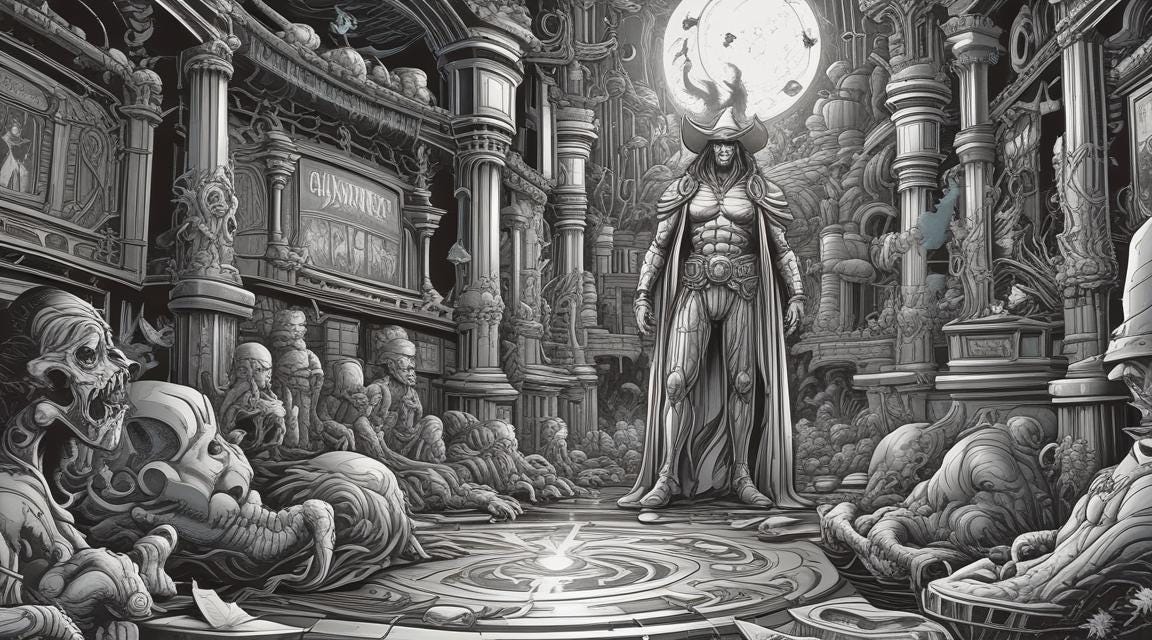Of Tortured Poets and Dark Matter
Culture is Not a Scarce Commodity
In April 2024, when I am writing this essay, popular artists released two huge albums. Taylor Swift released the album The Tortured Poets Department and Pearl Jam released Dark Matter. The reactions to Swift’s album have especially been a microcosm of how much of American evangelical Christianity acts toward those who have success outside of its influence. What I have noticed, though, is that both Taylor Swift and Pearl Jam have albums with similar themes; the experience of being human in the twenty-first century. The albums have themes of hope, loss, pain, love, relationship, and the gamut of human emotion. Both albums are good in their own right.
Swift uses some explicit Christian imagery in some of her stories because she is familiar with those images. There has been a wave of criticism from Christian circles for Swift’s use of Christian imagery. I find the outrage and criticism rather wanting for a few reasons. The first is that there have been claims that Swift is a witch and this feels so much like the Satanic and witchcraft scares of my youth, that I wonder why we keep succumbing to those conspiracies. Some Christians have a hard enough time understanding pop culture without adding on bizarre theories about popular and successful people. The second reason I find this wanting is because many of the voices decrying Swift’s use of Christian imagery seemed fine with a politician using messianic language and literally comparing himself to Jesus during Holy Week.
With those ideas in mind, is it any wonder that Swift would sing about the evangelical reaction to her success? Of course, the album itself differs from other projects. This is a complex and multilayered reflection that places Swift as an antihero on her own album. A consummate wordsmith, the depth in some lyrics is similar, yet different to other Swift albums. Even the “diss” tracks carry more nuance. But then tortured poets often go into deeper reflection.
Dark Matter is Pearl Jam, as I would expect to hear them decades after their debut. As contemporaries, the music is both familiar and strange, as with any maturing rock band. But those themes are deeply human. The complexities of relationships and emotions come out in the album. I see similar themes to Swift and more anti-hero language. Our culture is embracing anti-heroes as well. From the popularity of Deadpool and Wolverine to the stories in Fallout the TV series, anti-heroes give us hope that our own complicated lives can matter. For Christians, we worship an anti-hero who literally gave his life to show us how much he loves us. Yet, the anti-hero motif seems to turn off American Christians as losing cultural power dawns upon us.
But the larger issue is the American evangelical impulse to attack cultural successes not driven by evangelicalism. Why is there a seemingly unwritten rule that success outside of Christian culture must be evil or nefarious? Maybe it is just the success of human understanding. We’ve created a culture of anxiety within the Church as we attempt to turn culture back to a time when it took cues from evangelicalism. The latter will not happen as that culture left the building a long time ago. The Church need not fear culture, but we also need not embrace it.
Culture exists and will always exist, but its success does not lead to a “loss” for Christianity. Our assumption of scarcity has led us to think culture is a battle to be won rather than a thing to be understood and spoken into. Scarcity is a myth that we perpetuate at our own peril. Scarcity assumptions drive partisanship in politics, create an “us versus them” atmosphere, and end up with extreme mistrust of anything and anyone not like us. We need to quit thinking of the world and the culture of the world as Godforsaken, because as Dr. Scott Daniels said a few times this week, “There are no Godforsaken places, because God has gone to the Godforsaken places.” Let that truth sink in for a minute. If the incarnation means anything, it is that God goes to incredibly dark and faithful ends to show us how God’s heart sees us.
If God’s grace is sufficient, then there can be no godforsaken places or people. If we believe people to be godforsaken, then we do not have the mind of Christ. That may sound harsh within a context where we have viewed human beings who are not like us with suspicion and even called some godforsaken, but it is a deep truth that I pray we can once again learn from our own sacred texts. If we can, maybe we can also learn and find God working within Tortured Poets and Dark Matter. But we need to remove the lenses that filter out the good that does not come from us. My understanding of God as a God of steadfast love allows me to see God where I might miss God if I don’t look or listen closely. Maybe take time to listen more closely to culture and see God working on the margins and places we least expect; it will transform the way you see the world around you in astounding ways.




T-Swift and Pearl Jam? Oh yea, I’m in